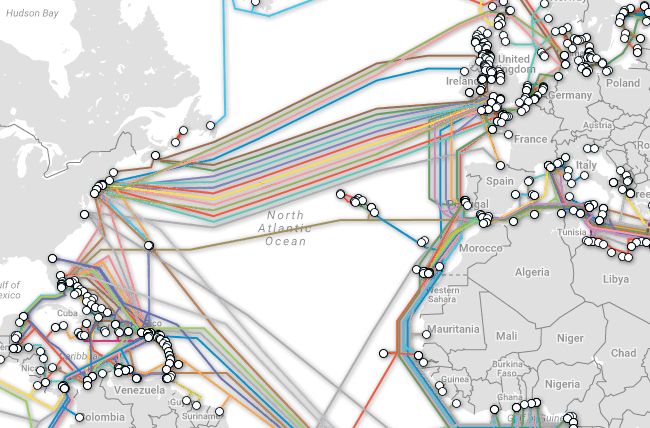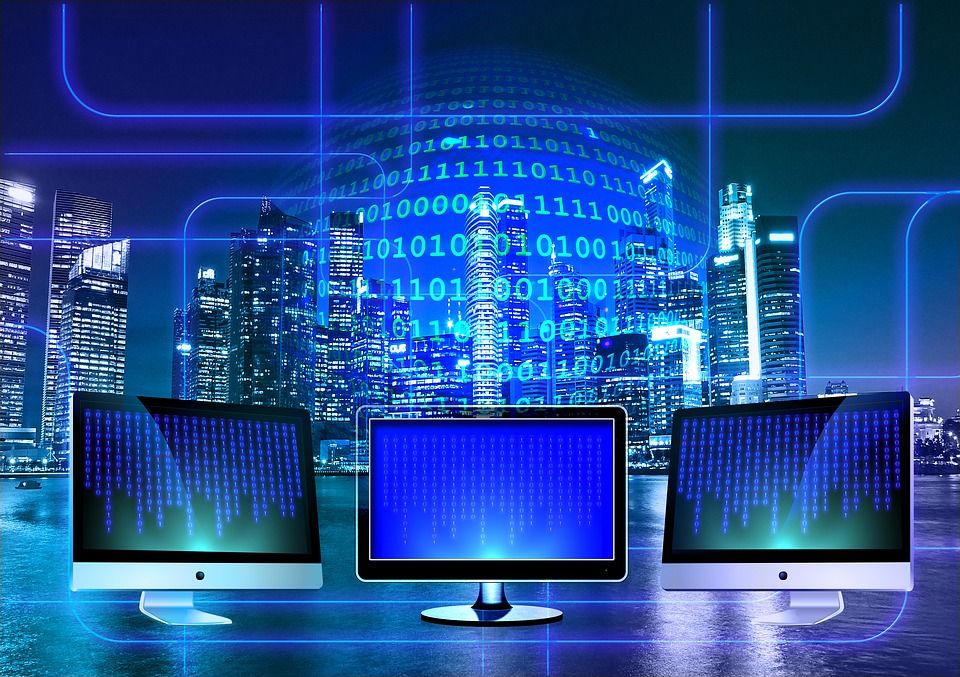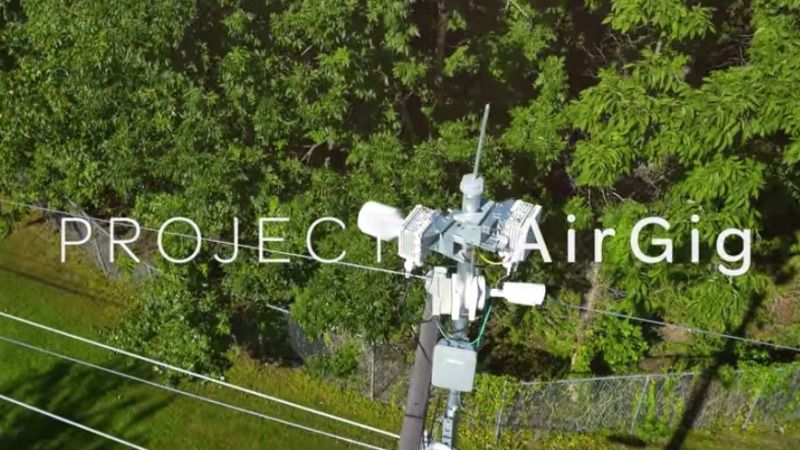Google is using AI-infused balloons to give the whole world internet access ![]() 🎈.
🎈.
Category: internet – Page 316
Terrorist in the machine: U.S. DOJ fears IoT for security
The huge wave of Internet of Things (IoT) enabled devices has the U.S. government worried that the technology harbors lurking security threats.
According to a Defense One article, the U.S. Department of Justice has joined other agencies in evaluating IoT technology for national security risks.
And with up to 50 billion connected devices coming online by 2020, the government is scrambling to assess threats from the fast evolving technology.


Scientists just demonstrated internet speeds 1,000 times faster than Google Fibre
Scientists in Germany have achieved internet speeds averaging a sustained 1 terabit per second (1 Tbps) on an optical fibre network.
At that speed, you’re getting a data transmission rate that’s a whopping 1,000 times faster than services like Google Fibre, which delivers 1 gigabit per second (1 Gbps).
While Google Fibre’s 1 Gbps itself might be considered sufficiently drool-worthy for those of us constrained to the even slower speeds of ADSL and cable, it can’t hope to compete to the almost ludicrously fast possibilities of an internet connection that’s 1,000 times faster, delivering 1 terabit per second.

Quantum computers will cripple encryption methods within decade, CSE head warns
Definitely less than a decade and even less than 7 especially with China Quantum Satellite, Google’s plan release next year of a Quantum device, etc. I hope folks don’t still believe that we’re immune from a QC attack after 2025.
In a rare public speech, Greta Bossenmaier, chief of the Communications Security Establishment, said cryptologists at the CSE and around the world are racing to find new cryptographic standards before Y2Q — years to quantum — predicted for 2026.
She is the third senior CSE official this week to warn publicly of the threat quantum computing poses to widely used public key cryptography (PKC), protecting sensitive data transmissions from hackers, hacktivists, foreign state spies and other malicious actors.
READ MORE: Why the silencing of KrebsOnSecurity opens a troubling chapter for the internet.

Someone is learning how to take down the Internet
This is definitely something that we should all be aware of, and watching for.
“Over the past year or two, someone has been probing the defenses of the companies that run critical pieces of the Internet,” according to a blog post by security expert Bruce Schneier.
“These probes take the form of precisely calibrated attacks designed to determine exactly how well these companies can defend themselves, and what would be required to take them down. It feels like a nation’s military cybercommand trying to calibrate its weaponry in the case of cyberwar.”
Schneier said major companies that provide the basic infrastructure that makes the Internet work [presumably, ones such as Cisco] have seen an increase in distributed denial of service (DDoS) attacks against them, and the attacks are significantly larger, last longer, and are more sophisticated.
DARPA perfects hacker-proof computer code
When the project started, a “Red Team” of hackers could have taken over the helicopter almost as easily as it could break into your home Wi-Fi. But in the intervening months, engineers from the Defense Advanced Research Projects Agency (DARPA) had implemented a new kind of security mechanism — a software system that couldn’t be commandeered. Key parts of Little Bird’s computer system were unhackable with existing technology, its code as trustworthy as a mathematical proof. Even though the Red Team was given six weeks with the drone and more access to its computing network than genuine bad actors could ever expect to attain, they failed to crack Little Bird’s defenses.
“They were not able to break out and disrupt the operation in any way,” said Kathleen Fisher, a professor of computer science at Tufts University and the founding program manager of the High-Assurance Cyber Military Systems (HACMS) project. “That result made all of DARPA stand up and say, oh my goodness, we can actually use this technology in systems we care about.”
The technology that repelled the hackers was a style of software programming known as formal verification. Unlike most computer code, which is written informally and evaluated based mainly on whether it works, formally verified software reads like a mathematical proof: Each statement follows logically from the next. An entire program can be tested with the same certainty that mathematicians prove theorems.


Not Content With Silencing Human Critics, Russia Has Now Arrested A Robot
1st Robot has been arrested this year; guess Kurzweil’s request for Robots to have Constitutional Rights may have a need.
You might be forgiven if you were under the impression that the Russian government is a bit behind the times when it comes to modern technology and its never ending desire to stifle every last bit of dissent possible. Between the bouts its had with internet censorship and some strange claims about how binge-watching streaming services are a form of United States mind-control, it would be quite easy to be left with the notion that this is all for comedy. Alas, blunders and conspiracy theories aside, much of this technological blundering is mere cover for the very real iron grip the Russians place upon free speech, with all manner of examples in technology used as excuses to silence its critics.
And now it’s no longer just human beings that need fear the Russian government, it seems. Just this past week, a robot was arrested at a political rally. And, yes, I really do mean a robot, and, yes, I really do mean arrested.
A robot has been detained by police at a political rally in Moscow, with authorities attempting to handcuff the machine. The rally was for Valery Kalachev, a candidate for the Russian Parliament, who had rented the robot for his campaign.

AT&T Wants to Blanket the Nation With Gigabit Wi-Fi From Utility Poles
Fiber-based internet service is great (ask any jealous New Yorker not eligible for FiOS) but laying fiber cable costs tens of thousands of dollars per mile. Infrastructure projects to bring it to every household in a given area so expensive, even Google can’t foot the bill. So AT&T decided to use stuff most places had already to piggyback a wi-fi signal.